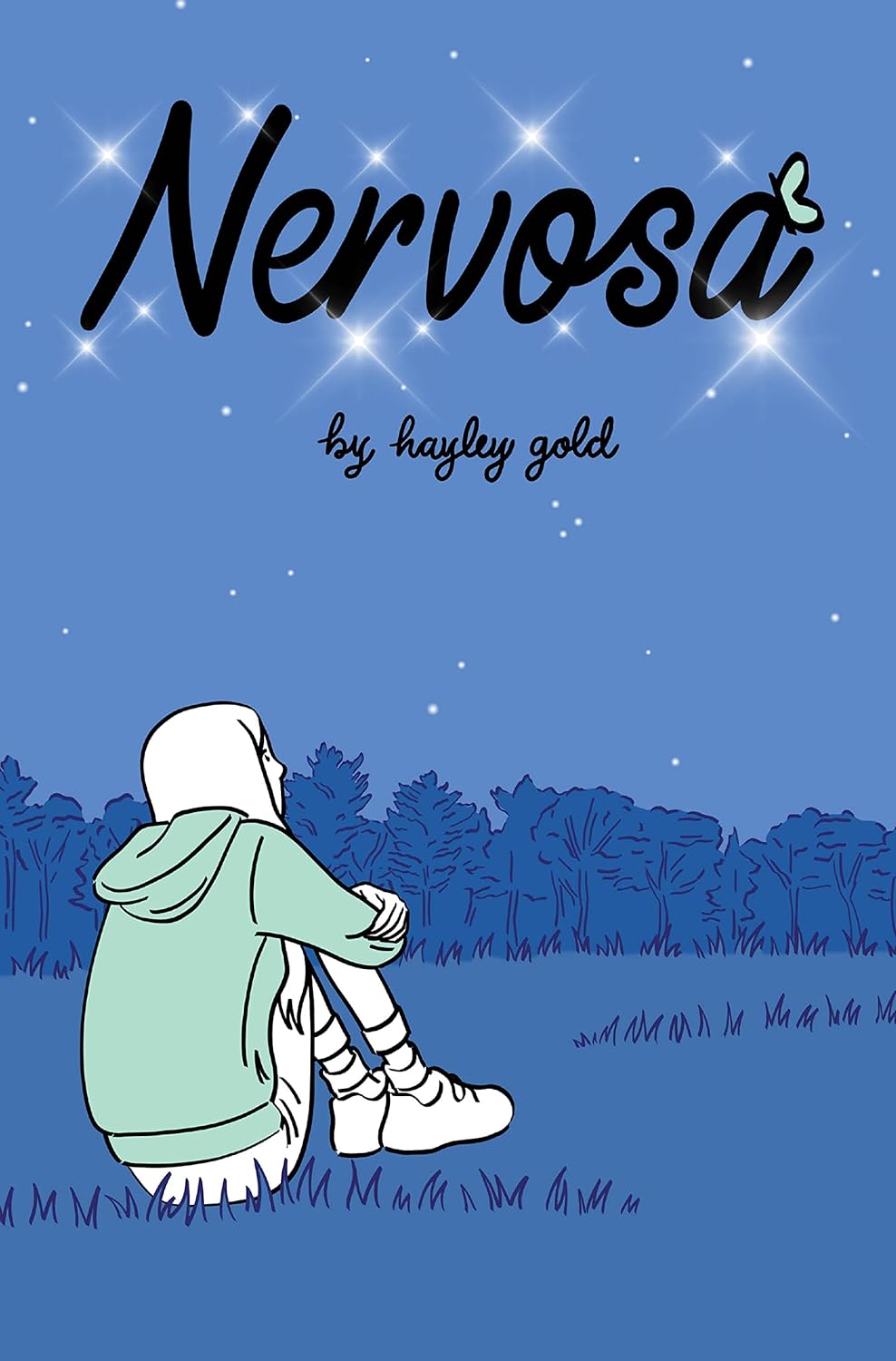
Meet author, cartoonist, and passionate crossword puzzler, Hayley Gold, in her memoir Nervosa. Nervosa, named to reference the eating disorder, Anorexia Nervosa, chronicles Gold’s personal experience with the disorder from a very young age. Gold’s family was dysfunctional to say the least. Her father constantly berated her mother for her weight and for eating too much. On top of that, when she was young, some blood work showed that Gold’s cholesterol was too high. She used to go get ice cream regularly with her dad, but now, because of this, she had to switch to frozen yogurt. All of this led to her obsession with numbers, especially regarding food. When she was 12, she was forced to stay in an in-patient facility for girls with eating disorders, which only resulted in her learning more “tricks” of the anorexia trade (Like hiding food from orderlies, flushing nutrition shakes down the toilet, chugging water right before being weighed to add water weight.)
Later on in the book, Gold introduces a new character; her “Twin” self, who she calls “Night” “Night” is a personification of Gold’s thoughts and inclinations. “Night” keeps Gold company in the hospitals, but also eggs on her Anorexia, encouraging her disordered behavior.
I found Nervosa to be a brutally honest look into what it is like to battle an eating disorder. Gold definitely uses a lot of dark humor in her book, often referring to the doctors and humanity as “dumb” and even referring to us readers as “stupid reader”. However, this did not feel offensive, but instead helped me to connect with how maltreated Gold was by the doctors, who she felt did not care about her. Even the illustrations add to the tone of the story. Gold uses very few colors (white, light blues, teals, and light pinks) which compliment the sterile and dull feeling inside the various hospitals Gold was forced to stay in. Having had a very close family member go through this same disorder at similar ages as Gold, her thought processing and experiences came across as very familiar to me. Her memoir is important for educating readers on the experiences of those with anorexia nervosa. Additionally, readers who are going through something similar themselves will very likely find reassurance and hope.
If you want to read other noteworthy autobiographical graphic memoirs related to mental health and recovery, look into these titles: Wired Up Wrong by Rachael Smith, Impossible People by Julia Wertz, and Ink in Water by Lacy J. Davis. These are all available for checkout at the Westmont Public Library.
We love helping people find books, movies, and more.
Tell us about your preferences, and our librarians will create a list of titles selected specifically for you.